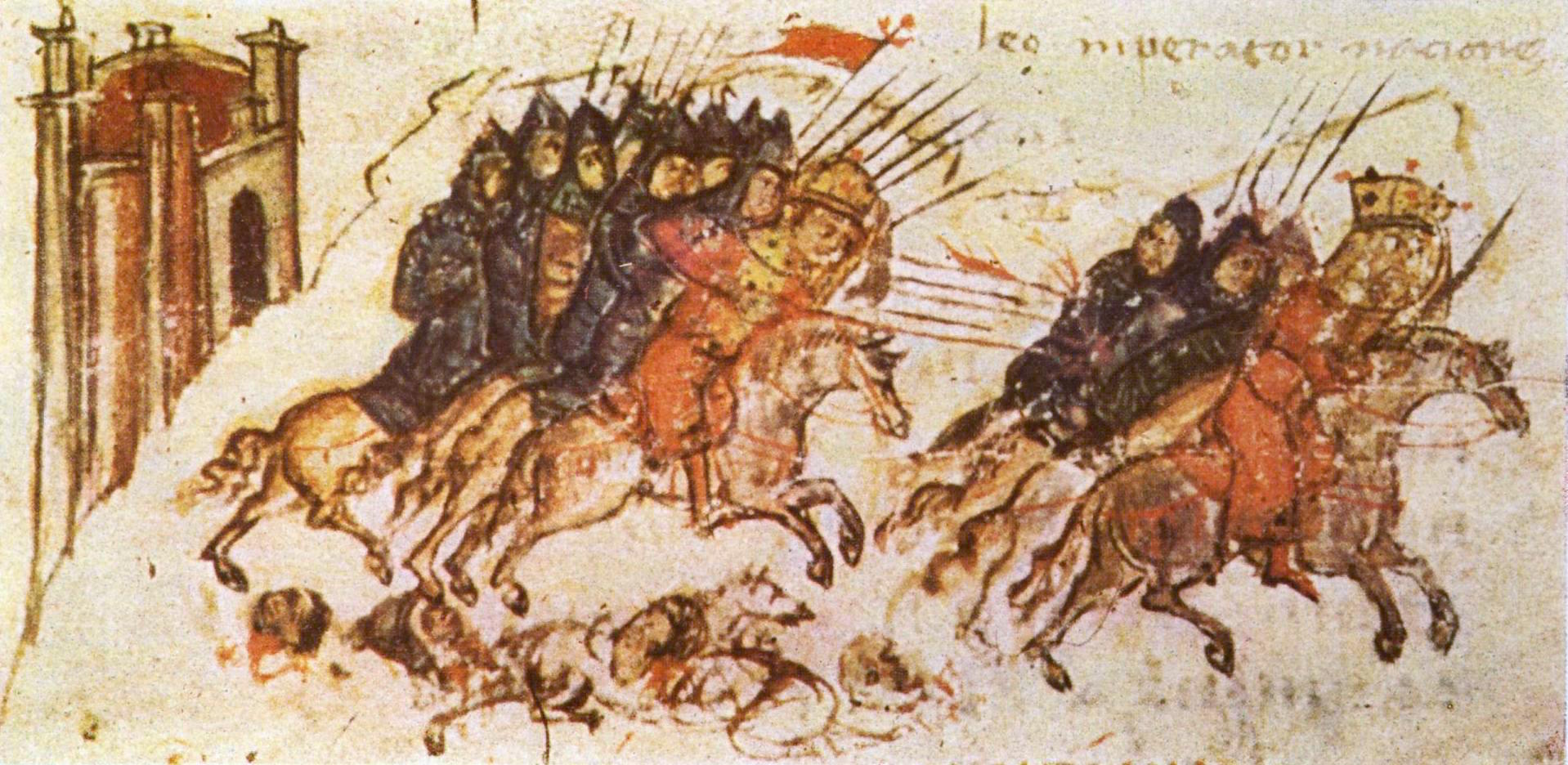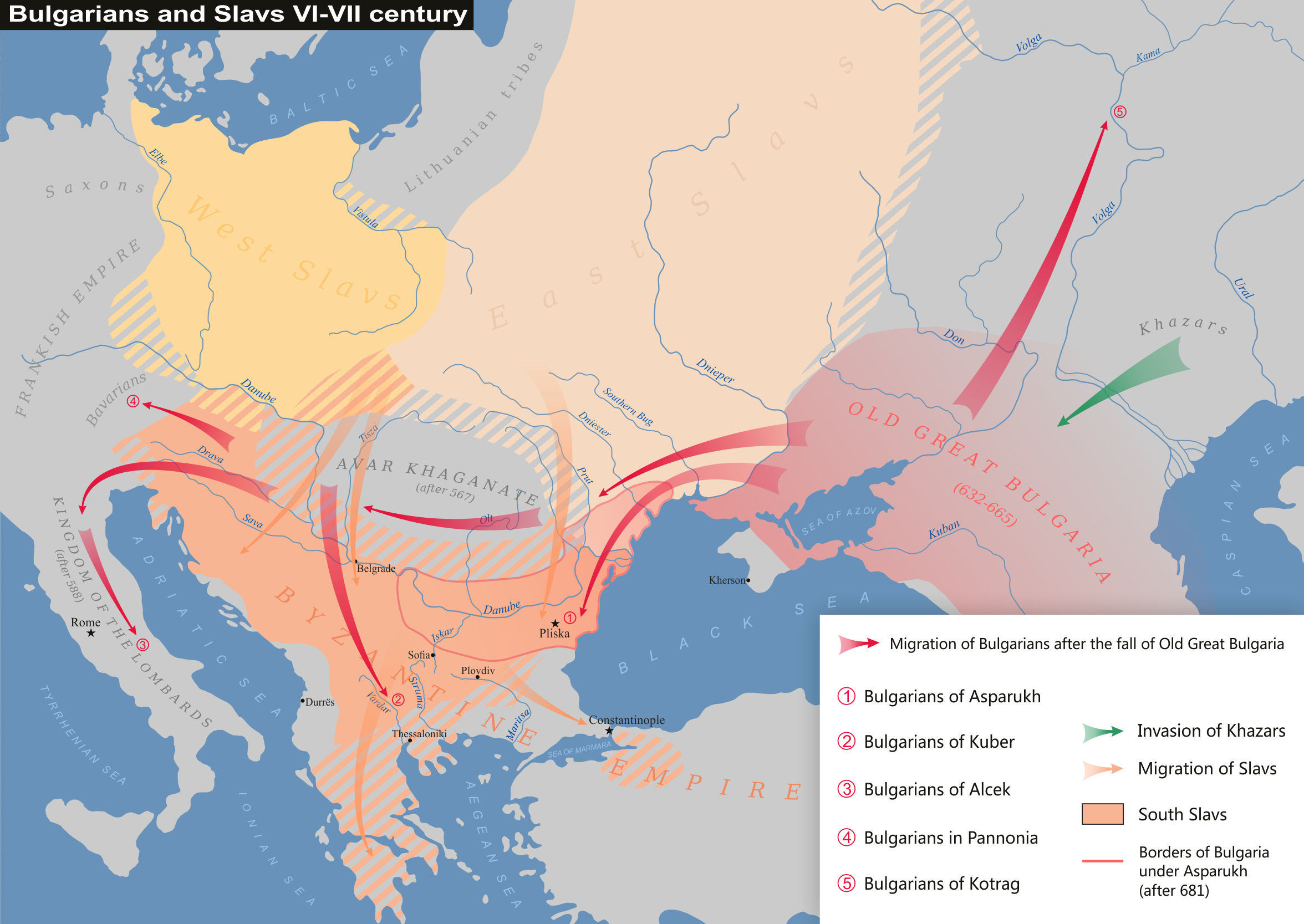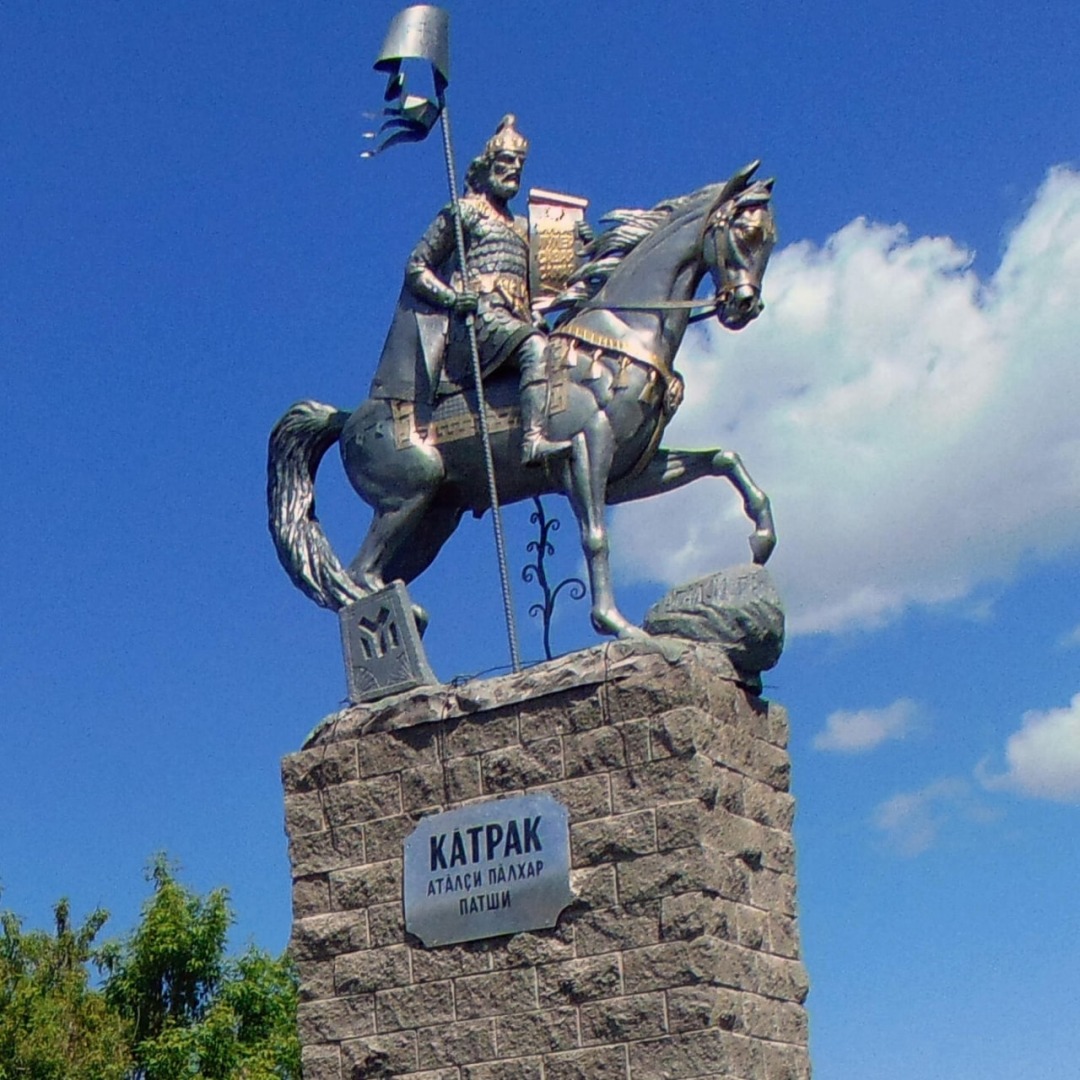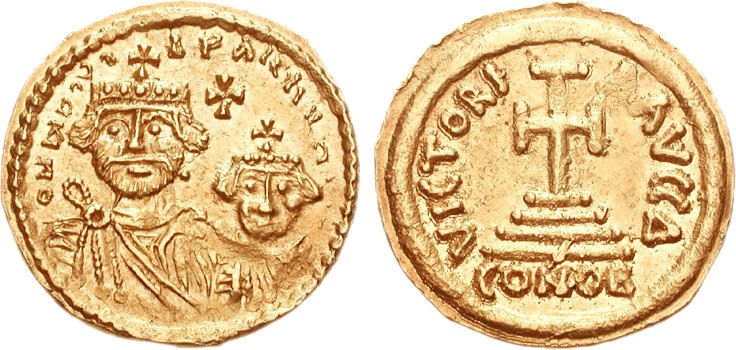|
Kubrat
Kubrat (; ) was the ruler of the Onogur–Bulgars, credited with establishing the confederation of Old Great Bulgaria in 632. His name derived from the Turkic words ''qobrat'' — "to gather", or ''qurt'', i.e. "wolf". Origin In the '' Nominalia of the Bulgarian khans'' Kubrat is mentioned as ''Kurt'' (), being a member of the Dulo clan and reigning for 60 years having succeeded Gostun of the Ermi clan. Bulgars were Turkic nomadic people, who participated in the 5th-century Hunnic confederation. Upon Attila's death, the tribes that later formed the Bulgars had retreated east into the Black Sea-Caspian Steppe. The western Bulgar tribes joined the Avar Khaganate, while the eastern Bulgars came under the Western Turkic Khaganate by the end of the 6th century. Theophanes the Confessor called him "king of the Onogundur Huns". Patriarch Nikephoros I (758–828) called Kubrat "lord of the Onuğundur" and "ruler of the Onuğundur–Bulğars". John of Nikiu ( 696) called him ... [...More Info...] [...Related Items...] OR: [Wikipedia] [Google] [Baidu] |
Old Great Bulgaria
Old Great Bulgaria (Medieval Greek: Παλαιά Μεγάλη Βουλγαρία, ''Palaiá Megálē Voulgaría''), also often known by the Latin names ''Magna Bulgaria'' and ''Patria Onoguria'' (" Onogur land"), was a 7th-century Turkic nomadic empire formed by the Onogur-Bulgars on the western Pontic–Caspian steppe (modern southern Ukraine and southwest Russia). Great Bulgaria was originally centered between the Dniester and lower Volga. The original capital was Phanagoria on the Taman Peninsula between the Black and Azov seas. In the mid-7th century, Great Bulgaria expanded west to include Avar territory and was centered on Poltava. During the late 7th century, however, an Avar-Slavic alliance in the west, and Khazars in the east, defeated the Bulgars, and Great Bulgaria disintegrated. Successor states are the First Bulgarian Empire and Volga Bulgaria. Origins The etymology of the ethnonym '' Bulgar'' is not completely understood; it is difficult to trace the n ... [...More Info...] [...Related Items...] OR: [Wikipedia] [Google] [Baidu] |
Bulgars
The Bulgars (also Bulghars, Bulgari, Bolgars, Bolghars, Bolgari, Proto-Bulgarians) were Turkic peoples, Turkic Nomad, semi-nomadic warrior tribes that flourished in the Pontic–Caspian steppe and the Volga region between the 5th and 7th centuries. They became known as Eurasian nomads, nomadic equestrians in the Volga-Ural region, but some researchers trace Bulgar ethnic roots to Central Asia. During their westward migration across the Eurasian Steppe, the Bulgar tribes absorbed other tribal groups and cultural influences in a process of ethnogenesis, including Iranian peoples, Iranic, Finno-Ugric peoples, Finno-Ugric, and Huns, Hunnic tribes. The Bulgars spoke a Turkic languages, Turkic language, the Bulgar language of the Oghur languages, Oghuric branch. They preserved the military titles, organization, and customs of Eurasian steppes as well as pagan shamanism and belief in the sky deity Tengri, Tangra. The Bulgars became semi-sedentary during the 7th century in the Pontic- ... [...More Info...] [...Related Items...] OR: [Wikipedia] [Google] [Baidu] |
Alcek
Alcek or Alzeco was allegedly a son of Kubrat and led the Bulgars to Ravenna that later settled in the villages of Gallo Matese, Sepino, Boiano and Isernia in the Matese mountains of southern Italy. After the collapse of Old Great Bulgaria, some of the Bulgars, led by Alzeco, thought to be a son of Kubrat, settled in the lands of the Longobard Kingdom. Paul the Deacon places a settlement in his history of the migration of the Bulgars in the area of the Duchy of Benevento. Under the leadership of Alzeco, the Bulgars (called "Vulgars" by Paul) came to Italy in Benevento, where they settled in the Molise region. Alciocus The earlier Khagan called Alciocus who was the leader of Bulgar hordes of the Avar Khanganate, is also known. The main source for these events is the medieval chronicle of Fredegar. In 623 Samo led a rebellion against the Pannonian Avars. Alciocus fled with 9,000 Bulgars to Bavaria where he asked the Frankish king Dagobert I for a piece of land to settle in ... [...More Info...] [...Related Items...] OR: [Wikipedia] [Google] [Baidu] |
Kuber
Kuber (also Kouber or Kuver) was a Bulgar leader who, according to the '' Miracles of Saint Demetrius'', liberated a mixed Bulgar and Byzantine Christian population in the 670s, whose ancestors had been transferred from the Eastern Roman Empire to the Syrmia region in Pannonia by the Avars 60 years earlier.CurtaFine According to a scholarly theory, he was a son of Kubrat, brother of Khan Asparukh and member of the Dulo clan. Origins According to the Byzantine scholar, Theophanes the Confessor, Kubrat's (unnamed) fourth son, who left the Pontic steppes after his father's death around 642, became "the subject of the of the Avars in Avar Pannonia and remained there with his army". According to a scholarly theory, first proposed by the Bulgarian historian Vasil Zlatarski, Kuber was the fourth son of Kubrat, the Christian ruler of the Onogur Bulgars in the steppes north of the Black Sea. Kuber's story is continued in the second book of the '' Miracles of Saint Demetriu ... [...More Info...] [...Related Items...] OR: [Wikipedia] [Google] [Baidu] |
Batbayan Of Bulgaria
Batbayan ruled the Khazarian Bulgars from 667 to 690 CE. Theophanes and Nicephorus record his rule after the Khazars defeated the Bulgars and Old Great Bulgaria disintegrated in 668 CE. There is a scholarly theory that he may have been the same person as Bezmer of the Nominalia of the Bulgarian khans who may have been also the first son of Kubrat. He was a member of the Dulo clan, who after Kubrat's death in the mid-7th century ruled Old Great Bulgaria, but his rule lasted only three years. Kevin Alan Brook Kevin is the anglicized form of the Irish masculine given name (; ; ; Latinized as ). It is composed of "dear; noble"; Old Irish and ("birth"; Old Irish ). The variant ''Kevan'' is anglicised from , an Irish diminutive form.''A Dictiona ... calls him Bayan.Kevin Alan Brook''The Jews of Khazaria'' Edition 3, Rowman & Littlefield, 2018, , p. 15. Batbayan would subsequently have ruled the Bulgars as a subject of the Khazar Khagan. Sources Year of birth unknow ... [...More Info...] [...Related Items...] OR: [Wikipedia] [Google] [Baidu] |
Dulo Clan
The Dulo clan was a ruling dynasty of the Bulgars, who were of Turkic origin. It is generally considered that their elite was related to the Huns and the Western Turkic Khaganate. Particularly, it is said that the Dulo descended from the rulers of Old Great Bulgaria. This state was a centralized monarchy from its inception, unlike previous Hunno-Turkic political entities, which were tribal confederations. The royal family and rulers of Old Great Bulgaria (632–668) and the first half of the First Bulgarian Empire (681–1018), in their prince lists ('' Nominalia of the Bulgarian khans'') claimed through descent from Attila through Irnik, possibly Attila's attested son Ernak. During the pagan period, the succession of clan leadership was based on traditions brought over to the Balkans from the Eurasian Steppe, which include the rulers' divine ancestry. At the head of the clan was the '' Khan'', who reigned as the head of state, military leader, and probably high priest of the B ... [...More Info...] [...Related Items...] OR: [Wikipedia] [Google] [Baidu] |
Batbayan
Batbayan ruled the Khazaria The Khazars ; 突厥可薩 ''Tūjué Kěsà'', () were a nomadic Turkic people who, in the late 6th century CE, established a major commercial empire covering the southeastern section of modern European Russia, southern Ukraine, Crimea, an ...n Bulgars from 667 to 690 CE. Theophanes the Confessor, Theophanes and Nikephoros I of Constantinople, Nicephorus record his rule after the Khazars defeated the Bulgars and Old Great Bulgaria disintegrated in 668 CE. There is a scholarly theory that he may have been the same person as Bezmer of the Nominalia of the Bulgarian khans who may have been also the first son of Kubrat. He was a member of the Dulo clan, who after Kubrat's death in the mid-7th century ruled Old Great Bulgaria, but his rule lasted only three years. Kevin Alan Brook calls him Bayan.Kevin Alan Brook''The Jews of Khazaria'' Edition 3, Rowman & Littlefield, 2018, , p. 15. Batbayan would subsequently have ruled the Bulgars as a subject of ... [...More Info...] [...Related Items...] OR: [Wikipedia] [Google] [Baidu] |
Kotrag
Kotrag was according to Nikephoros I of Constantinople a son of Kubrat of the Dulo clan of Bulgars. Following the death of his father, he began to extend the influence of his Bulgars to the Volga River. He is remembered as the founder of Volga Bulgaria. Honour * Kotrag Nunatak on Greenwich Island in the South Shetland Islands, Antarctica is named after Kotrag. * In the Republic of Chuvashia in the village of Shemursha on June 30th 2022, a monument was erected to the founder of the Volga The Volga (, ) is the longest river in Europe and the longest endorheic basin river in the world. Situated in Russia, it flows through Central Russia to Southern Russia and into the Caspian Sea. The Volga has a length of , and a catchment ... Bulgaria - Khan Kotrag * Later, on January 12th 2023, another monument to Khan Kotrag, was installed in Shiryaev on Popova Hill. The monument was made by the famous Bulgarian sculptor Dishko Dishkov. The official opening is scheduled for sp ... [...More Info...] [...Related Items...] OR: [Wikipedia] [Google] [Baidu] |
Organa
Organa (Alpo-Morgan) was Kubrat's maternal uncle of the Ermi clan. According to John of Nikiu, he was regent ( kavkhan) over the tribe of the Onogur Bulgars from 617 to 630 in place of his nephew, Kubrat, for the time Kubrat was growing up as a hostage in the Byzantine Empire. There is information that Organa accompanied Kubrat on his initial trip to Constantinople. Some historians have identified Organa with Gostun and Western Turkic Baghatur Qaghan (莫賀咄可汗 ''Mòhèduō Kèhán''). Panos Sophoulis considered that ''Organa'' is in fact a Turkic title (''or- ḡan/qan'') rather than a proper name. Honor Organa Peak on Smith Island in Antarctica Antarctica () is Earth's southernmost and least-populated continent. Situated almost entirely south of the Antarctic Circle and surrounded by the Southern Ocean (also known as the Antarctic Ocean), it contains the geographic South Pole. ... is named after Organa. References See also * '' Nominalia of the Bulg ... [...More Info...] [...Related Items...] OR: [Wikipedia] [Google] [Baidu] |
Avar Khaganate
The Pannonian Avars ( ) were an alliance of several groups of Eurasian nomads of various origins. The peoples were also known as the Obri in the chronicles of the Rus' people, Rus, the Abaroi or Varchonitai (), or Pseudo-Avars in Byzantine Empire, Byzantine sources, and the Apar () to the Göktürks. They established the Avar Khaganate, which spanned the Pannonian Basin and considerable areas of Central Europe, Central and Eastern Europe from the late 6th to the early 9th century. The name Pannonian Avars (after the area in which they settled) is used to distinguish them from the Avars (Caucasus), Avars of the Caucasus, a separate people with whom the Pannonian Avars may or may not have had links. Although the name ''Avar'' first appeared in the mid-5th century, the Pannonian Avars entered the historical scene in the mid-6th century, on the Pontic–Caspian steppe as a people who wished to escape the rule of the Göktürks. They are probably best known for their invasions and de ... [...More Info...] [...Related Items...] OR: [Wikipedia] [Google] [Baidu] |
Onogurs
The Onoghurs, Onoğurs, or Oğurs (Ὀνόγουροι, Οὔρωγοι, Οὔγωροι; Onογurs, Ογurs; "ten tribes", "tribes") were a group of Turkic nomadic equestrians who flourished in the Pontic–Caspian steppe and the Volga region between the 5th and 7th centuries, and spoke an Oghuric language. Etymology The name ''Onoğur'' is widely thought to derive from ''On-Oğur'' "ten Oğurs (tribes)". Modern scholars consider Turkic terms for tribe ''oğuz'' and ''oğur'' to be derived from Turkic ''*og/uq'', meaning "kinship or being akin to". The terms initially were not the same, as ''oq/ogsiz'' meant "arrow", while ''oğul'' meant "offspring, child, son", ''oğuš/uğuš'' was "tribe, clan", and the verb ''oğša-/oqša'' meant "to be like, resemble". The modern name of "Hungary" (see name of Hungary) is usually believed to be derived from On-Oğur (> (H)Ungari). Language The Onoghuric or Oghuric languages are a branch of the Turkic languages. Some scholars suggest ... [...More Info...] [...Related Items...] OR: [Wikipedia] [Google] [Baidu] |
Asparukh
Asparuh (also ''Ispor'' or (rarely) ''Isperih'') was а Bulgar Khan in the second half of the 7th century and is credited with the establishment of the First Bulgarian Empire in 681. Early life The '' Nominalia of the Bulgarian Khans'' states that Asparuh belonged to the Dulo clan and reigned for 61 years. This long period cannot be accepted as accurate due to chronological constraints, and may indicate the length of Asparuh's life. According to the chronology developed by Moskov, Asparuh would have reigned 668–695. Other chronologies frequently end his reign in 700 or 701 but cannot be reconciled with the testimony of the ''Namelist''. According to the Byzantine sources, Asparuh was a younger son of Kubrat, who had established a spacious state (" Great Bulgaria") in the steppes of modern Ukraine. Asparuh may have gained experience in politics and statesmanship during the long reign of his father, who probably died in 665 (apud Moskov). According to Djagfar Tarikhy ... [...More Info...] [...Related Items...] OR: [Wikipedia] [Google] [Baidu] |







